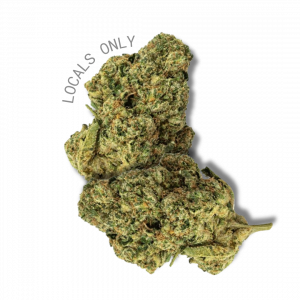

Washington, DC has a significant history in psychedelics research dating back to the 1950s and 1960s. During this period, institutions such as the National Institute of Mental Health (NIMH) and the Walter Reed Army Institute of Research conducted pioneering studies on the therapeutic potential of substances like LSD and psilocybin. These investigations focused on the effects of psychedelics on mental health and consciousness.
However, research in this field was abruptly halted in the late 1960s when psychedelics became associated with countercultural movements and were subsequently classified as Schedule I controlled substances. This classification effectively ended all legal research into their potential benefits for several decades. In recent years, there has been a resurgence of scientific interest in the therapeutic applications of psychedelics.
Institutions such as Johns Hopkins University and the University of Maryland have been at the forefront of this renewed research effort. This revival has been driven by accumulating evidence suggesting that psychedelics may have potential in treating various mental health conditions, including depression, anxiety, PTSD, and addiction. As a result of this renewed interest, Washington, DC has once again become a center for advanced psychedelics research.
Scientists and clinicians in the area are actively investigating the potential benefits and applications of these substances in the field of mental health treatment.
In recent years, Washington, D.C. has witnessed significant breakthroughs in psychedelics research, particularly with the resurgence of clinical trials investigating the therapeutic potential of psychedelics. Researchers at institutions like Johns Hopkins University have been conducting pioneering studies on the use of psilocybin, the active compound in magic mushrooms, to treat depression and anxiety. These studies have yielded promising results, with many participants reporting significant improvements in their symptoms after just a single dose of psilocybin.
In addition to clinical trials, there has been a growing interest in the neurobiological mechanisms underlying the effects of psychedelics. Scientists at institutions like the National Institute on Drug Abuse (NIDA) have been using advanced imaging techniques to study how psychedelics affect the brain, shedding light on their potential therapeutic effects.
Furthermore, there has been a push to explore the use of psychedelics in combination with psychotherapy, with researchers at the University of Maryland investigating how these substances can enhance the therapeutic process. This multidisciplinary approach has the potential to revolutionize the treatment of mental health disorders.
These developments have put Washington, D.C. at the forefront of psychedelics research, paving the way for new treatment options for individuals struggling with mental health disorders. As research continues to uncover the potential of psychedelics, we may be on the cusp of a new era in mental health treatment.

The resurgence of psychedelics research in Washington, DC has had a profound impact on mental health treatment. Studies have shown that psychedelics such as psilocybin and MDMA can produce rapid and sustained improvements in symptoms for individuals with treatment-resistant depression, PTSD, and other mental health conditions. This has led to a growing recognition of the potential of these substances as powerful tools for addressing the global mental health crisis.
In fact, some experts have gone so far as to suggest that psychedelics could revolutionize the field of psychiatry by offering new treatment options for individuals who have not responded to traditional therapies. Furthermore, psychedelics research has also sparked a paradigm shift in our understanding of mental health disorders. By studying the effects of these substances on the brain and behavior, scientists have gained new insights into the underlying neurobiology of conditions like depression and anxiety.
This has led to a reevaluation of traditional models of mental illness and has opened up new avenues for developing more effective treatments. As a result, psychedelics research has the potential to not only transform how we treat mental health disorders but also how we conceptualize and approach these conditions.
| Consideration | Description |
|---|---|
| Informed Consent | All participants must be fully informed about the nature of the research and provide their consent to participate. |
| Confidentiality | Researchers must ensure that the identity and data of participants are kept confidential and not disclosed without consent. |
| Risk Assessment | Researchers must assess and minimize potential risks to participants, including psychological and physical harm. |
| Regulatory Compliance | Research must comply with all relevant laws, regulations, and ethical guidelines governing the use of psychedelics in research. |
| Community Engagement | Researchers should engage with the communities affected by their research to ensure their perspectives and concerns are considered. |
The resurgence of psychedelics research in Washington, DC has raised important ethical and legal considerations that must be carefully navigated. One of the primary ethical concerns is ensuring the safety and well-being of research participants. Psychedelics can produce powerful and sometimes challenging experiences, so researchers must take great care to provide adequate support and guidance to individuals undergoing these treatments.
Additionally, there is a need to ensure that participants are fully informed about the potential risks and benefits of participating in psychedelic studies, as well as their rights as research subjects. From a legal standpoint, psychedelics research faces significant regulatory hurdles due to their classification as Schedule I controlled substances. This classification imposes strict limitations on the production, distribution, and use of these substances for research purposes.
As a result, researchers must navigate a complex web of regulations and obtain special permissions from federal agencies in order to conduct studies involving psychedelics. However, recent developments, such as the FDA granting breakthrough therapy designation for psilocybin-assisted therapy for depression, suggest that attitudes towards psychedelics research are evolving, paving the way for more streamlined regulatory pathways in the future.
Washington, DC has emerged as a leading hub for psychedelics research due to its concentration of top-tier research institutions and government agencies. Institutions like Johns Hopkins University and the National Institutes of Health (NIH) have been at the forefront of pioneering studies on the therapeutic potential of psychedelics, attracting top talent and funding to support this work. Furthermore, the city’s proximity to federal decision-makers provides an opportunity to influence policy and regulatory frameworks surrounding psychedelics research.
In addition to its academic and governmental resources, Washington, DC also benefits from a vibrant community of advocates and activists who are passionate about advancing psychedelics research. Organizations like Decriminalize Nature DC and Students for Sensible Drug Policy have been instrumental in raising awareness about the potential benefits of psychedelics and advocating for policy changes at both the local and national levels. This grassroots support has helped to create a favorable environment for psychedelics research in Washington, DC, making it an ideal location for scientists and clinicians seeking to push the boundaries of our understanding of these substances.

Looking ahead, the future of psychedelics research in Washington, DC appears bright. The city is poised to continue leading the way in advancing our understanding of these powerful substances and their potential therapeutic applications. With ongoing clinical trials showing promising results and an increasing acceptance of psychedelics as legitimate tools for mental health treatment, it is likely that we will see continued growth in this field.
Furthermore, there is growing momentum behind efforts to reform outdated drug policies that have hindered psychedelics research for decades. Initiatives to decriminalize or legalize psychedelics are gaining traction in various jurisdictions across the country, including Washington, DC itself.
If successful, these efforts could open up new opportunities for researchers to explore the full range of therapeutic uses for psychedelics without fear of legal repercussions.
Public perception and education on psychedelics research in Washington, DC have evolved significantly in recent years. While there is still lingering stigma and misinformation surrounding these substances, there has been a concerted effort to educate the public about the science behind psychedelics and their potential benefits for mental health. Events such as educational seminars, documentary screenings, and public talks have helped to demystify psychedelics and foster informed discussions about their role in modern medicine.
Moreover, media coverage of groundbreaking studies on psychedelics has played a crucial role in shaping public opinion. High-profile endorsements from celebrities and public figures have also helped to destigmatize these substances and raise awareness about their therapeutic potential. As a result, there is a growing sense of openness and curiosity about psychedelics research among the general public in Washington, DC, paving the way for greater acceptance and support for this important work.
If you’re interested in learning more about the potential benefits of psychedelics, you might want to check out this article on unleashing the power of cannabis and psychedelic mushrooms in style. It provides valuable insights into the growing interest in these substances and their potential impact on mental health and well-being.
Psychedelics research in Washington, DC is currently ongoing, with several institutions and organizations conducting studies on the potential therapeutic uses of psychedelics such as psilocybin, MDMA, and LSD.
Institutions involved in psychedelics research in Washington, DC include Johns Hopkins University, the Multidisciplinary Association for Psychedelic Studies (MAPS), and the Center for Psychedelic and Consciousness Research at Johns Hopkins Medicine.
The main focus areas of psychedelics research in Washington, DC include exploring the potential therapeutic effects of psychedelics for mental health conditions such as depression, anxiety, PTSD, and addiction. Researchers are also studying the mechanisms of action of psychedelics in the brain and their potential for enhancing creativity and spirituality.
Psychedelics research is legal in Washington, DC, as long as it is conducted in compliance with federal and local regulations. Researchers must obtain the necessary permits and approvals from regulatory agencies such as the Food and Drug Administration (FDA) and the Drug Enforcement Administration (DEA).
Recent developments in psychedelics research in Washington, DC include the establishment of the Center for Psychedelic and Consciousness Research at Johns Hopkins Medicine, which is dedicated to studying the effects of psychedelics on the brain and behavior. Additionally, there has been an increase in funding and public interest in psychedelics research, leading to a growing number of studies and clinical trials in the region.